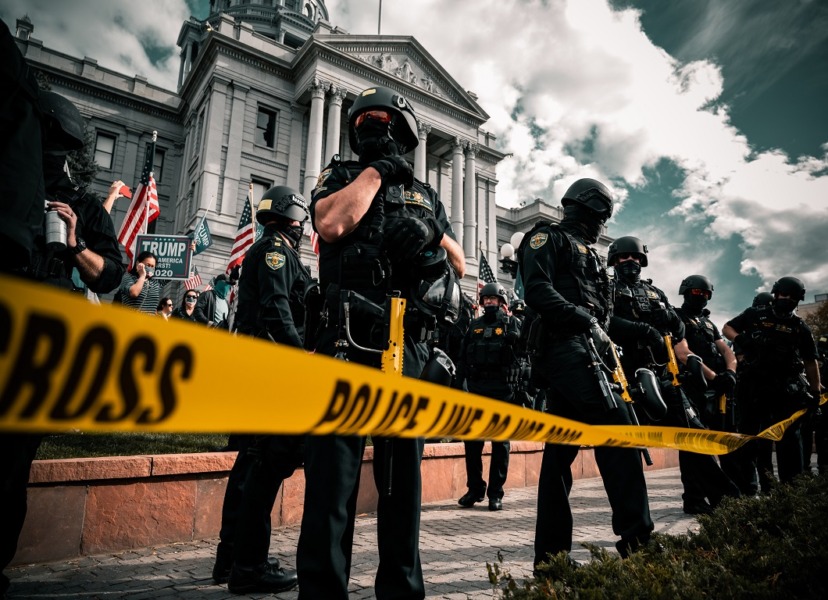Florida, USA– In the intricate nature of American politics, the Department of Justice (DOJ) stands as a bastion of law and order, symbolizing the nation’s commitment to upholding justice and preserving democratic values. The Republican Party and MAGA faithful, however, continue to have raise eyebrows and ignited debates about the alleged weaponization of the DOJ, leading to widespread concerns among Americans. The allegations swirling around the current Department of Justice are of grave importance, transcending party lines and calling into question the very foundation of the American Republic.
While claims of the DOJ being weaponized are not new, the issue has resurfaced with unprecedented vigor in recent times. One pivotal moment that continues to cast a shadow on the integrity of the DOJ is the tenure of the Trump Administration. During those years, the lines between the presidency and the justice department became increasingly blurred, leaving room for skepticism about the department’s autonomy. The memory of that era lingers, serving as a stark reminder of the potential consequences when a clear separation between political power and the justice system is compromised.
A current flashpoint that exemplifies these concerns is the aftermath of the January 6th insurrection, a day that will forever be etched in the nation’s memory. The Capitol breach, fueled by misinformation and political fervor, shook the very foundations of American democracy. The subsequent investigations and legal proceedings have laid bare the intricate interplay between justice and politics. Accusations from some quarters of the political spectrum that the DOJ is using its authority to persecute individuals involved in the insurrection politically have only added fuel to an already raging fire.
One can argue that during such times of turmoil, the strength of democratic institutions is put to the test. It is crucial to note, however, that the term “political persecution” is not one that can be lightly bandied about. Political persecution is a term more commonly associated with authoritarian regimes and unstable nations, a far cry from the ideals upon which the United States was founded. While the rhetoric surrounding the January 6th and recent Fulton County indictments may be contentious, it is essential to approach these accusations with a keen eye for discerning fact from hyperbole.
The political landscape is rife with nuance, and this is particularly evident within the GOP. The spectrum of viewpoints within the party is vast, ranging from ardent Trump supporters to those who maintain a more measured distance from the former president. A noteworthy aspect of this discourse is the balance that party members must strike between appeasing their base and upholding the principles that underpin the American system. The perception that the DOJ is targeting former President Trump and his associates has given rise to a delicate dance between political maneuvering and upholding the rule of law.
One name that has emerged amidst this turmoil is Vivek Ramaswamy, an outlier in the GOP who has openly expressed his willingness to pardon Trump if needed. This stance starkly contrasts many of his party colleagues who, while vocal in their defense of Trump’s actions, have not committed to a similar gesture. The intriguing question arises: why the dissonance between rhetoric and potential action? Could it be that some within the GOP recognize the gravity of the situation, irrespective of their outward political stance?
The erosion of democracy within the American Republic is not solely contingent upon the actions of one party or the other. Rather, it is a reflection of the complex dance between power and ideology that has been a hallmark of democratic societies throughout history. The perception of the DOJ’s actions and motivations underscores the fragility of democratic institutions and the responsibility that comes with wielding political influence.
As the nation grapples with these weighty matters, it is imperative to remember that democracy is not static. It requires constant vigilance, open discourse, and a willingness to confront uncomfortable truths. The accusatory finger-pointing and the rhetoric of political persecution contribute to an environment where the erosion of democratic values becomes a very real possibility. It is the duty of every American, regardless of their political affiliation, to engage in the thoughtful exchange of ideas and to question the narratives that shape our understanding of events. The future of the American Republic hangs in the balance, and the responsibility to safeguard its ideals rests on the shoulders of every citizen.









